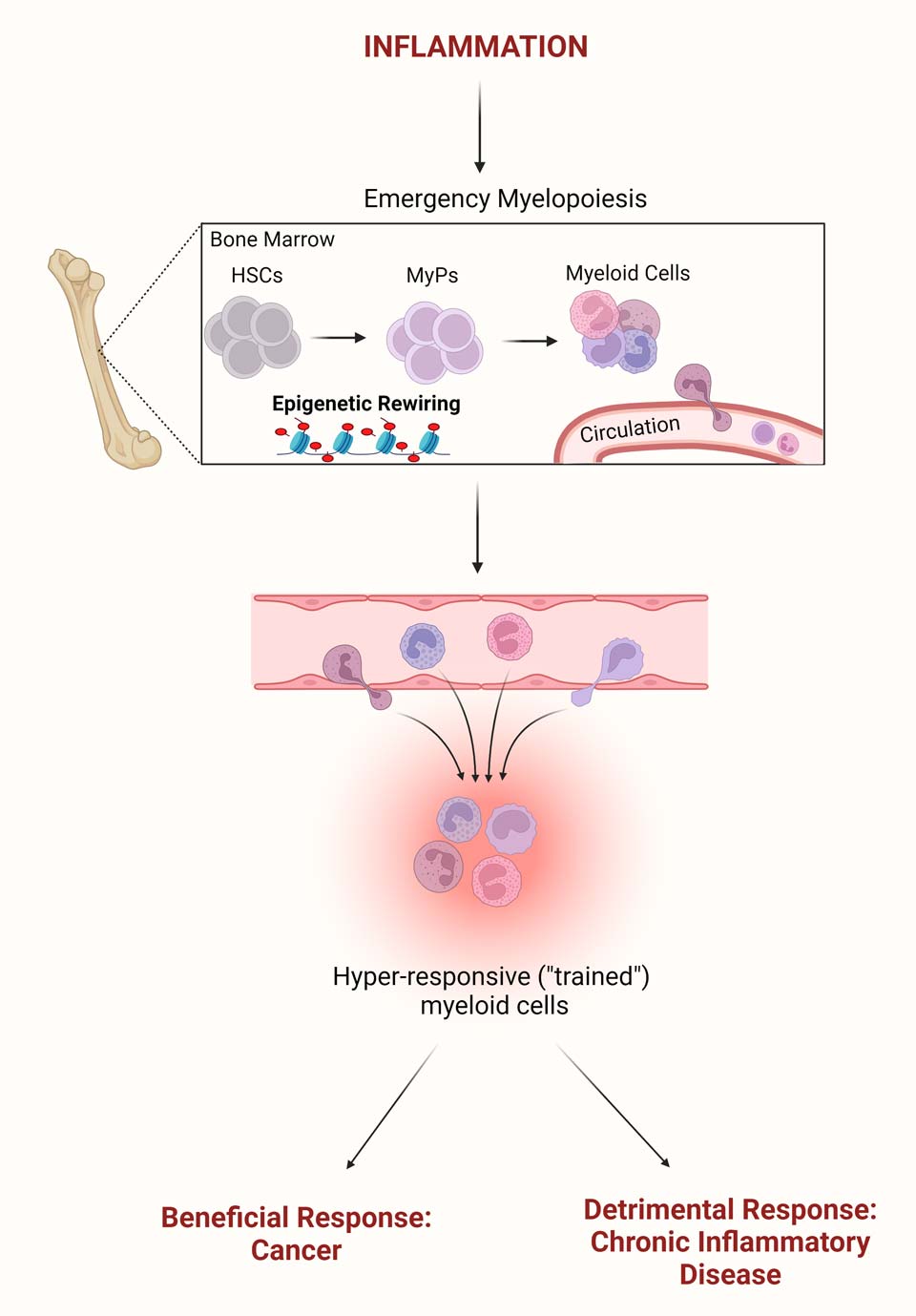Lydia Kalafati Group
Inflammation-mediated Regulation of Myelopoiesis

The bone marrow reacts to inflammation. Specifically, acute or chronic inflammation promotes increased production of myeloid cells from bone marrow progenitors, a process termed as emergency myelopoiesis. The ability of hematopoietic stem and progenitor cells to sense and adapt to such pro-inflammatory cues underlies also the induction of trained immunity. Trained immunity is characterized by sustained epigenetic rewiring of bone marrow progenitors leading to production of “trained” myeloid cells with enhanced immune preparedness to respond to future stimuli. This hyper-responsiveness of trained myeloid cells can result to either beneficial or detrimental outcomes depending on the disease context.
Future Projects and Goals
Our lab is interested in defining how inflammatory modulation of myelopoiesis and processes pertinent to trained immunity may affect inflammatory disease and cancer, including tumor immunotherapy. With the planned collaborations with the Institute of Polymer Research in Dresden (IPF) and the Helmholtz-Zentrum Dresden-Rossendorf (HZDR), we will be using the support of innovative biomaterials (IPF) and excellent imaging methods (HZDR) towards development of new cellular immunotherapies against cancer.
Methodological and Technical Expertise
- Disease mouse models
- Ex vivo and in vitro assays with primary mouse cells
- Flow cytometry
- Cell culture
- Single cell and bulk sequencing (transcriptomics, epigenomics, metabolomics)
